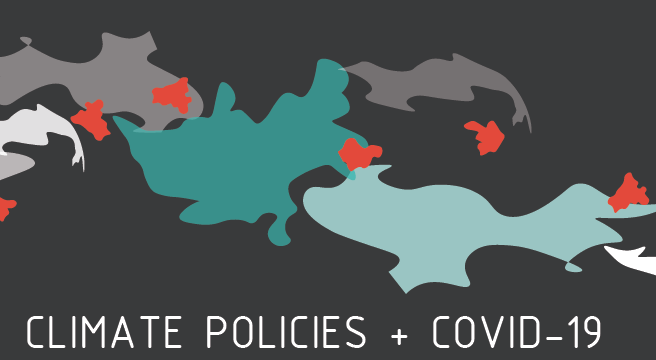Global Change Seminar: Multidisciplinary Panel Discusses Climate Policies and COVID-19

This post was written by 2020-21 Global Change Fellow, Rebecca Asser, summarizing the first seminar in the Fall 2020 Global Change Seminar series, Climate Policies and COVID-19, on October 22, 2020. The discussion was moderated by Global Change Fellows Megan Johnson and Greta Easthom.
View a recording of the panel discussion.
Climate Policies and COVID-19
On October 22, 2020, the Southeast Climate Adaptation Science Center’s Global Change Fellows hosted a multidisciplinary panel to discuss the effects of COVID-19 on climate adaptation policy. The panelists, representing the fields of policy analysis, journalism, and scientific research, provided their unique perspectives as the world and nation faces changing climate, pandemic, and energy around social and environmental justice issues.
Presenters:
- Mr. Andrew Freedman, deputy weather editor at the Washington Post, specializing in coverage of extreme weather and climate change. Previously, he was science editor at Axios, where he wrote the weekly Axios science newsletter. Before joining Axios, Andrew was science editor at Mashable, where he established and expanded its science vertical by focusing on extreme weather events, climate change, clean energy technology, space exploration and species conservation. His previous experience includes writing and editing positions at Congressional Quarterly, Environment and Energy Publishing and Climate Central, where he was among the first reporters to use the term “polar vortex.” Andrew has an undergraduate degree in political science from Tufts University, a master’s in law and diplomacy from The Fletcher School and a master’s in climate and society from Columbia University.
- Dr. Christopher Galik, Associate Professor in the Department of Public Administration within the School of Public and International Affairs at North Carolina State University. He is also a member of the Sustainable Energy Systems and Policy cluster, part of the Chancellor’s Faculty Excellence Program, working across a variety of disciplines — from engineering, to economics, to the natural sciences — to address a variety of energy and environmental management and policy challenges. Christopher holds a bachelor’s degree in biology from Vassar College, a master’s degree in resource economics and policy from Duke University, and a Ph.D. in forestry and environmental resources from NC State. He returned to NC State in 2016 after working for about a decade on a variety of environmental and energy policy research and outreach initiatives at Duke University’s Nicholas Institute for Environmental Policy Solutions.
- Dr. Chris Weaver, climate scientist and Chief of the Integrated Environmental Assessment Branch at the U.S. Environmental Protection Agency’s Center for Public Health and Environmental Assessment. His work has focused on understanding climate system processes, climate change impacts and adaptation, and risk assessment, planning, and decision-making under uncertainty. From 2011-2015, he served in a number of leadership roles within the U.S. Federal climate science enterprise, including as Deputy Director and Acting Director of the U.S. Global Change Research Program (USGCRP) and as a Senior Advisor in the White House Office of Science and Technology Policy (OSTP). He received his Ph.D. from the Scripps Institution of Oceanography and his undergraduate degree from Princeton University.
Through questions from both the Global Change Fellows and the audience, the panelists explored topics of equity and the relaxing of climate regulations, yet also the potential to fast forward mindsets and action around climate change. The Global Change Fellows are grateful to the panelists as the conversation sparked inspiration without losing sight of the realities of climate change, policy, and a pandemic.
- Categories:

